Swiss entrepreneur Max Schneeberger pursues cultural mission in Almaty
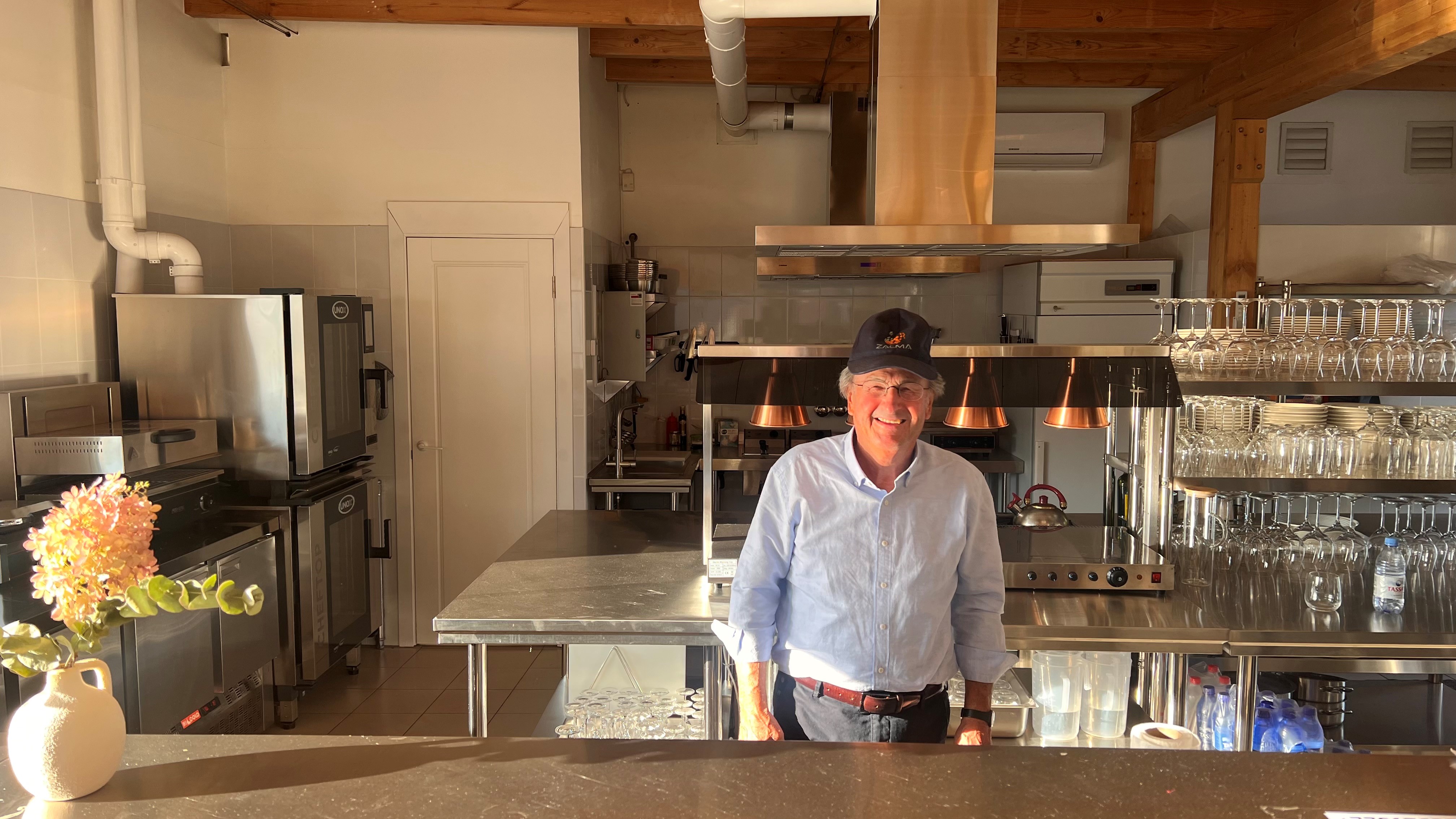
Since taking early retirement, the trained electrician from canton Zurich has made a new career in Central Asia. In the process, he is indirectly giving a boost to democracy in his adopted country of Kazakhstan.
“On the outside, very little has changed here over the past 25 years,” says Max Schneeberger. We are bumping along a tarmac road riddled with potholes in the outskirts of Almaty. A tangled spaghetti of power and telephone lines hangs above our heads.
Despite the no-parking signs, parked cars line the roadside. “I hope no one is blocking my driveway today,” Schneeberger sighs, as we draw nearer to his house.
Today he is in luck, as his access is unobstructed. Schneeberger has been living in Almaty, Kazakhstan’s largest city with two million inhabitants, for a quarter of a century.
He has clear memories of the day he arrived in the country. “I landed here in mid-May, with a mandate to set up a distribution network for my company and then move on after a few months.” This was the life of the trained electrician, who grew up in the small town of Uster in canton Zurich. For years, Schneeberger travelled from country to country, developing new markets for a Swiss-American pharmaceutical company, recruiting local managers and then heading on. His wife and children stayed home in Switzerland.
But then everything changed for him. “I had just turned 50 and was newly divorced. I liked it here and I found the people very friendly and interesting.” Instead of leaving after a few months, Schneeberger took early retirement and invested his modest savings in setting up his own company in Kazakhstan, specialised in equipping medical laboratories.
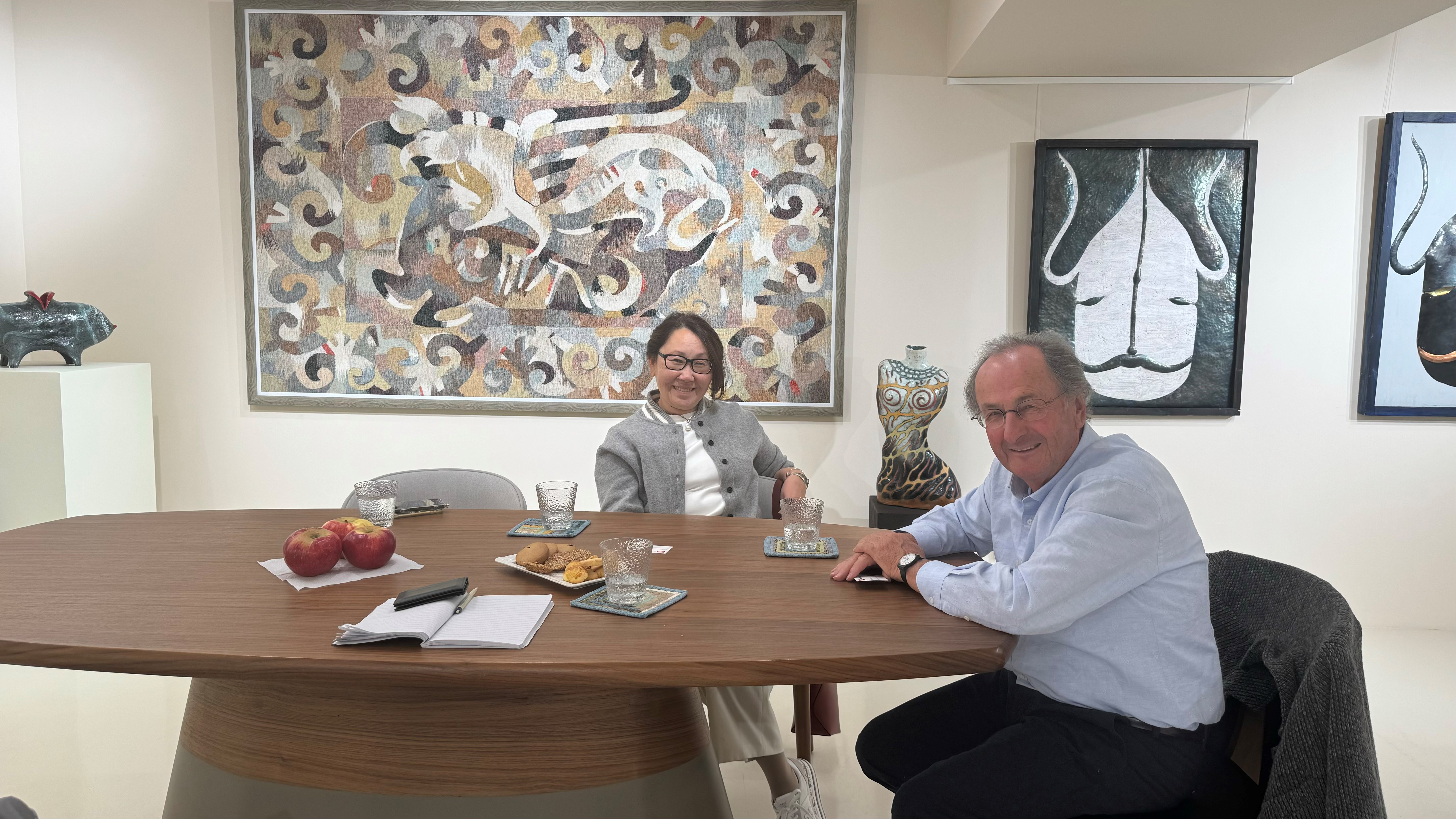
The first employee he recruited was an ophthalmologist and single mother from the Kazakh provinces, Zaure Ismagulova. “She impressed me in more ways than one” says Schneeberger. Wedding bells soon rang out for the unlikely couple.
A lot of hard work lay ahead of the pair. “Today, our company here in Almaty employs 60 people and we earn good money,” says Ismagulova during an interview at the Aizakhan Gallery, which she opened in the centre of Almaty. Here, as part of a foundation she and her husband set up, she exhibits works of art by Kazakh artists “who have not yet been discovered and have difficulty making a living from their work,” the 58-year-old ophthalmologist explains.
SWI’s global democracy correspondent, Bruno Kaufmann, is visiting Swiss citizens living abroad who, with their views and their active social or political work, represent a “bridge” between their old and new homes. These are countries and cities that might not be in the media spotlight but which face important decisions in terms of democracy and policy.
With a surface area of 2.7 million square kilometres, Kazakhstan is the ninth-largest country and the largest landlocked country in the world. It is also the most important economy in Central Asia. It is rich in raw materials – including oil and gas, but also thanks to large deposits of important metals – and has a strong agricultural sector.
As a non-Kazakh citizen from Switzerland (the Central Asian state does not allow dual citizenship), Schneeberger deliberately refrains from engaging in political issues. Instead, he wants to use his work to help young Kazakhs become politically emancipated, responsible citizens.
As the only Swiss national permanently living in the country, he is regularly invited to events organised by the Swiss embassy. “This is where I meet delegations of politicians from Switzerland and representatives from local civil society,” he says. Among these is Yevgeniy Zhovtis, director of the Kazakhstan International Bureau for Human Rights and the Rule of Law, an independent NGO in Almaty.
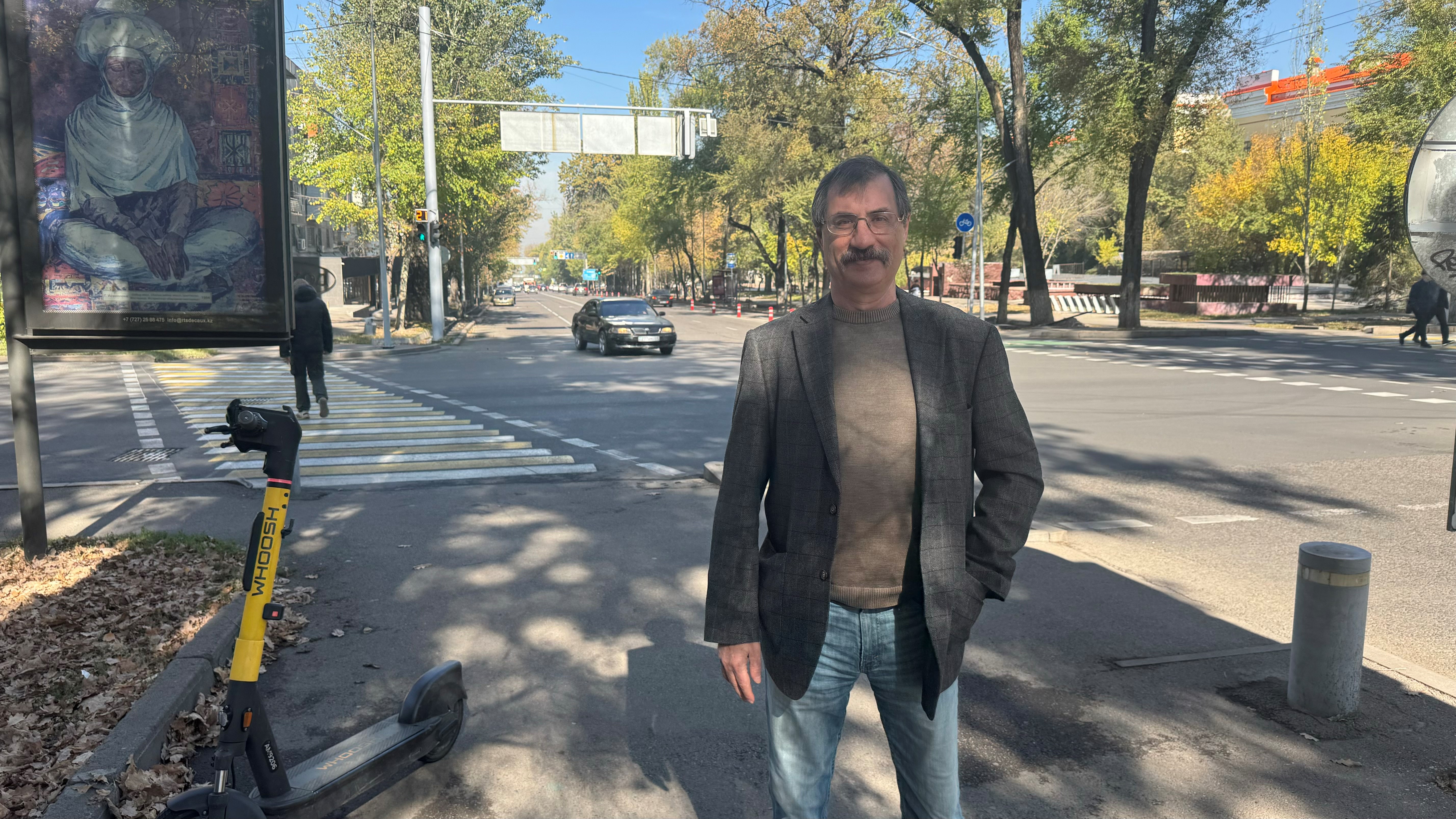
Kazakhstan is still stuck in a post-Soviet era, Zhovtis explains. “We are neither a modern democracy nor a totalitarian dictatorship; instead we have a regime that navigates quite skilfully between the different sides.” This includes managing to get on with Russia and China, Kazakhstan’s large neighbours to the north and east, while at the same time maintaining close relations with the West. These include ties with Switzerland, which, like so much else in today’s Kazakhstan, represent a balancing act – for both sides.
The Kazakh government – which international democracy ranking institutions such as Freedom HouseExternal link have described as “unfree”, “authoritarian” and “corrupt” – spares no effort to don “a cloak of democracy”, as Zhovtis puts it. On October 6, Kazakh citizens were called upon to vote whether the country should build its first nuclear power plant. “I voted against,” says Ismagulova, because the government was unable to provide a plausible explanation as to why this nuclear power was necessary. “But most people here in Almaty didn’t take part in the referendum at all,” she adds.
‘Unverifiable voting results’
According to the authorities, the nuclear power proposal tabled by President Kassym-Jomart Tokayev was approved by 71% of voters. However, many Kazakhs doubt the veracity of this result – including former diplomat Zhanar Kulzhanova. “Nobody can verify this, and in fact nobody really believes it,” she says. While independent observers from Kazakhstan and abroad reported irregularities, disregard of basic regulations and attempts at intimidationExternal link by state agencies, the authorities referred to positive assessments by friendly observer delegationsExternal link from the Commonwealth of Independent States, the Shanghai Cooperation Organisation and the Organisation of Turkish States. Observers from the Organisation for Security and Cooperation in Europe or the European Union were not granted access.
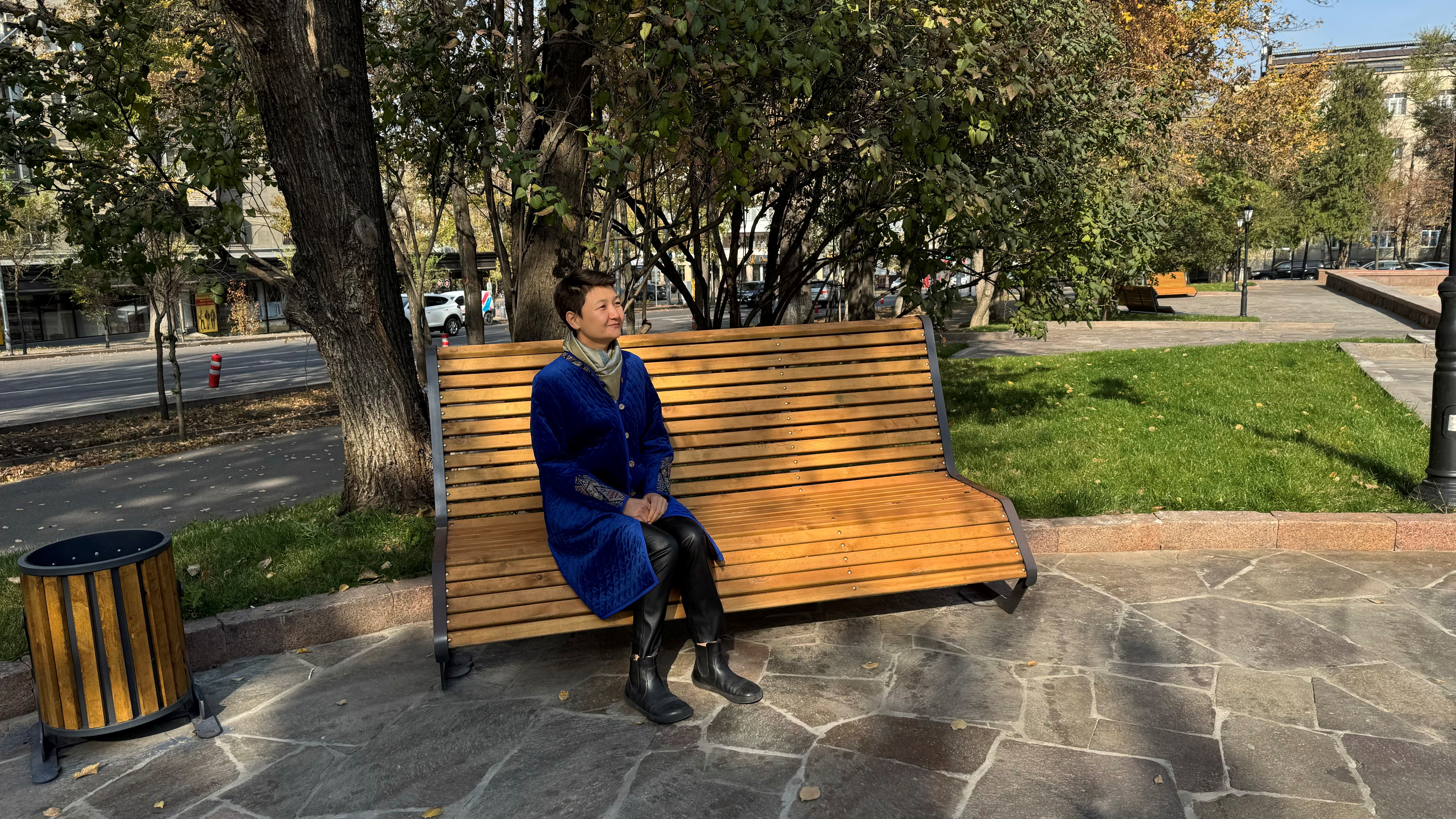
Kulzhanova believes that the Kazakh government wanted to send a signal to Moscow with the vote. The power plant, she explains, is to be built by a state-owned Russian company.
Overall, the former diplomat describes Kazakh citizens’ faith in elections and voting as “very, very modest”, but she sees an increased commitment to social and environmental issues among the younger generation. And the government is not simply responding to this with silence or repression, but has recently launched a platform for online petitions where people can publicly criticise the authorities. The protection of the Taldykol lakes in the capital Astana, some thousand kilometres north of Almaty, is a major concern taken up on this platform.
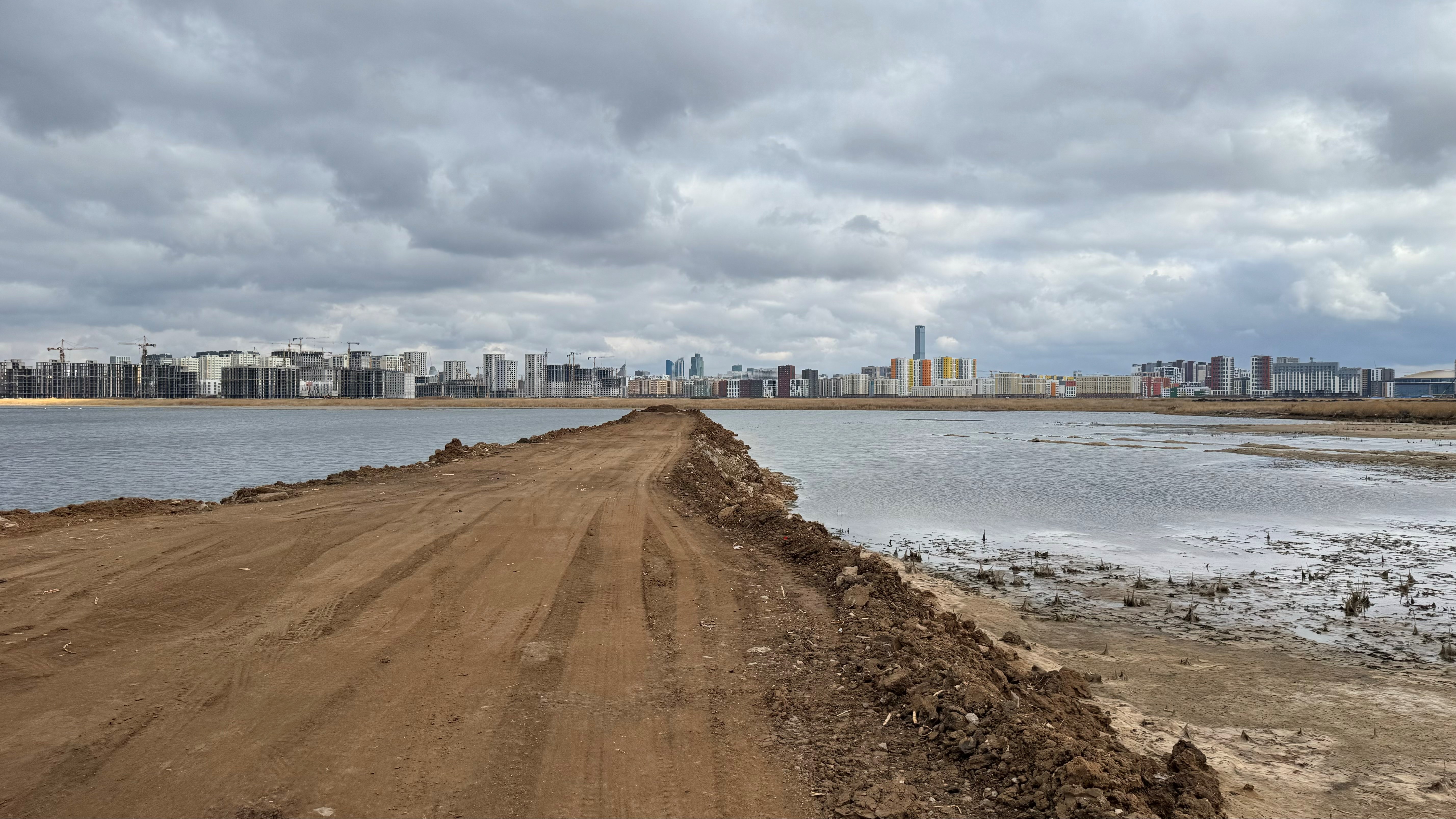
Astana has only been the capital of Kazakhstan, which declared independence from the Soviet Union in 1991, for 25 years. In the middle of the brown steppe in the north of the country, a modern metropolis with over a million inhabitants, skyscrapers and government headquarters emerged in a short space of time. In the last five years, the legally protected Taldykol lake system has been massively damaged because of the expansion of the city.
“As a result of illegal construction activities, six of the seven lakes have been destroyed forever by the influx of sewage and dumping of waste,” says activist Adina Tulegenova from the NGO SOS Taldykol during a tour of the capital.
According to the NGO, several dozen different bird species live in the last largely intact lake. However, construction companies have already built a temporary road into the lake. Several lawsuits are currently pending in Kazakh courts. And according to Zhanar Kulzhanova, co-founder of SOS Taldykol, a complaint against the Kazakh state is being prepared for submission to the UN Human Rights Council in Geneva. In the meantime, construction work continues.
Schneeberger and Ismagulova still own the medical company but no longer run it. This gives the Swiss-Kazakh couple more time to concentrate on their own projects. Through our work today, “we can give something back to this country and this society that made so much possible for us,” they say. As well as promoting Kazakh creative artists, the couple is now creating a meeting place for events.
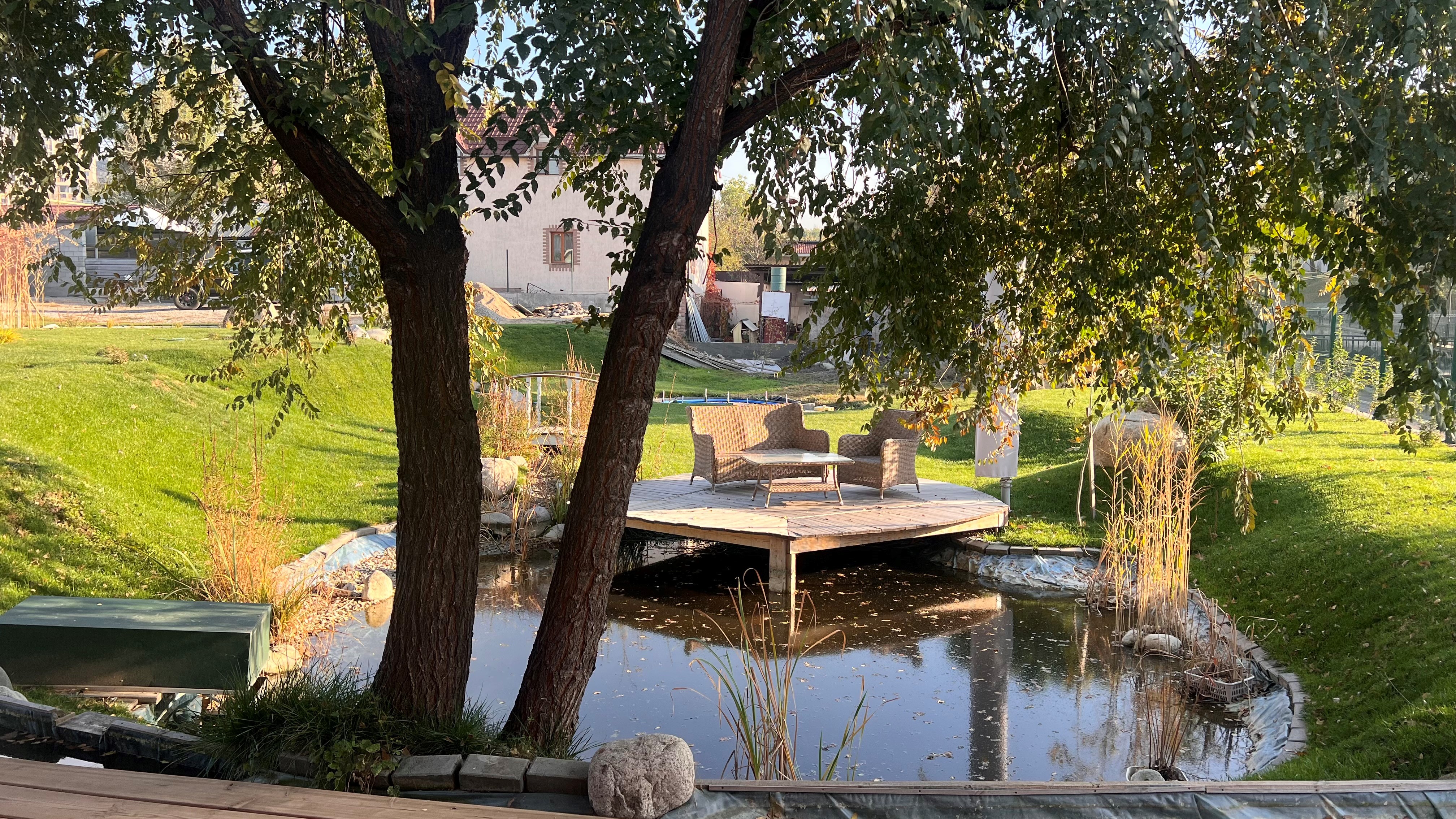
This is where Schneeberger now spends most of his time. “We were able to buy this plot of land for not too much and are now putting heart and soul into it,” he explains, as he walks around the newly laid-out park with its small lake, comfortable benches and clubhouse that can fit up to 100 people. The first event, an orchestra concert, took place here in late October. Lectures and debates on current topics are also planned for the future.
The 75-year-old spends several hours a day in the clubhouse garden, wielding a spade and heaving wheelbarrows of earth, to create a small, green, democracy-friendly oasis. “I’ve always worked hard, ever since I was 15 and started my apprenticeship as an electrician,” he says. “I’ve never known anything else.”
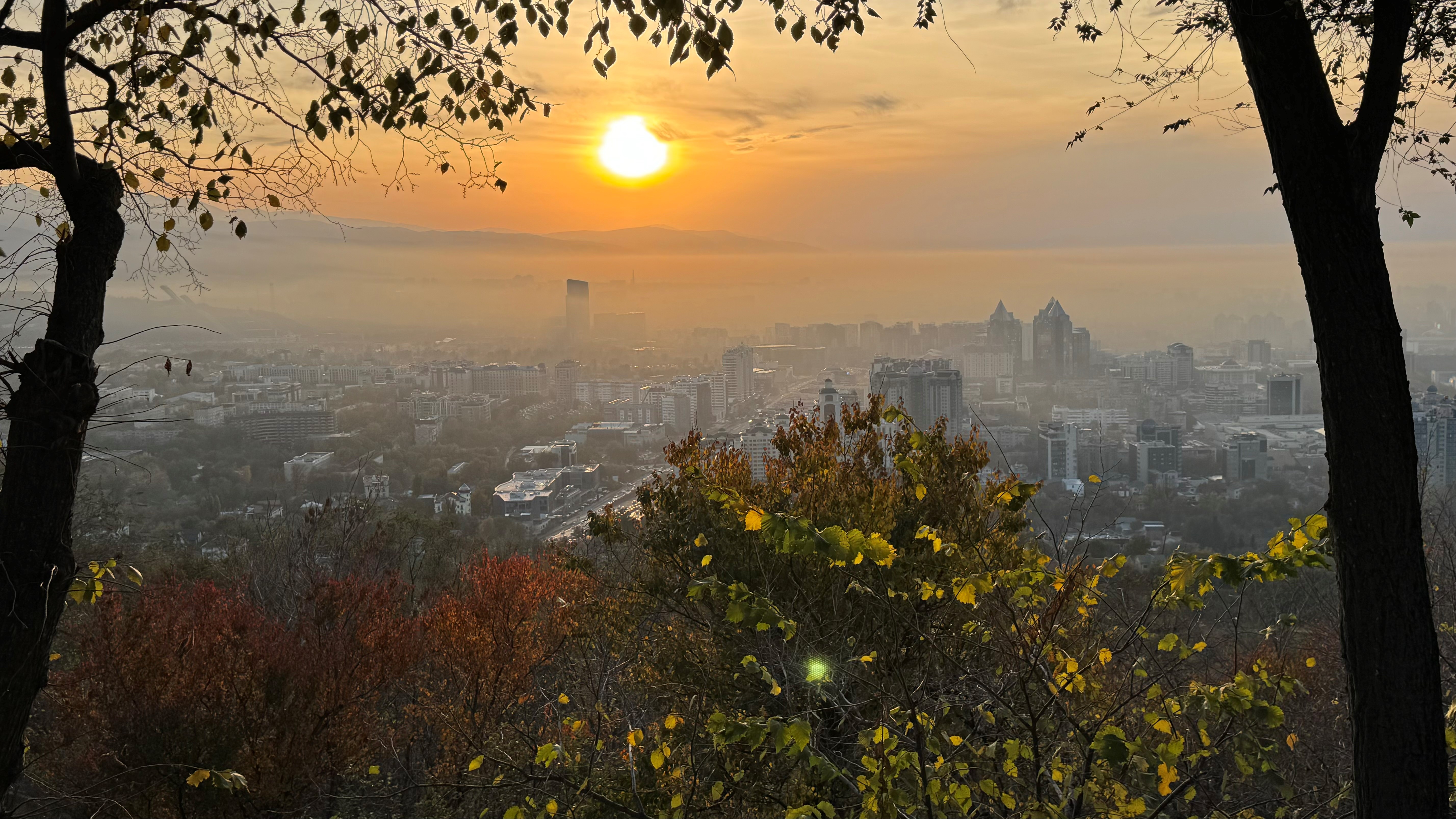
Edited by Mark Livingston/sb

In compliance with the JTI standards
More: SWI swissinfo.ch certified by the Journalism Trust Initiative








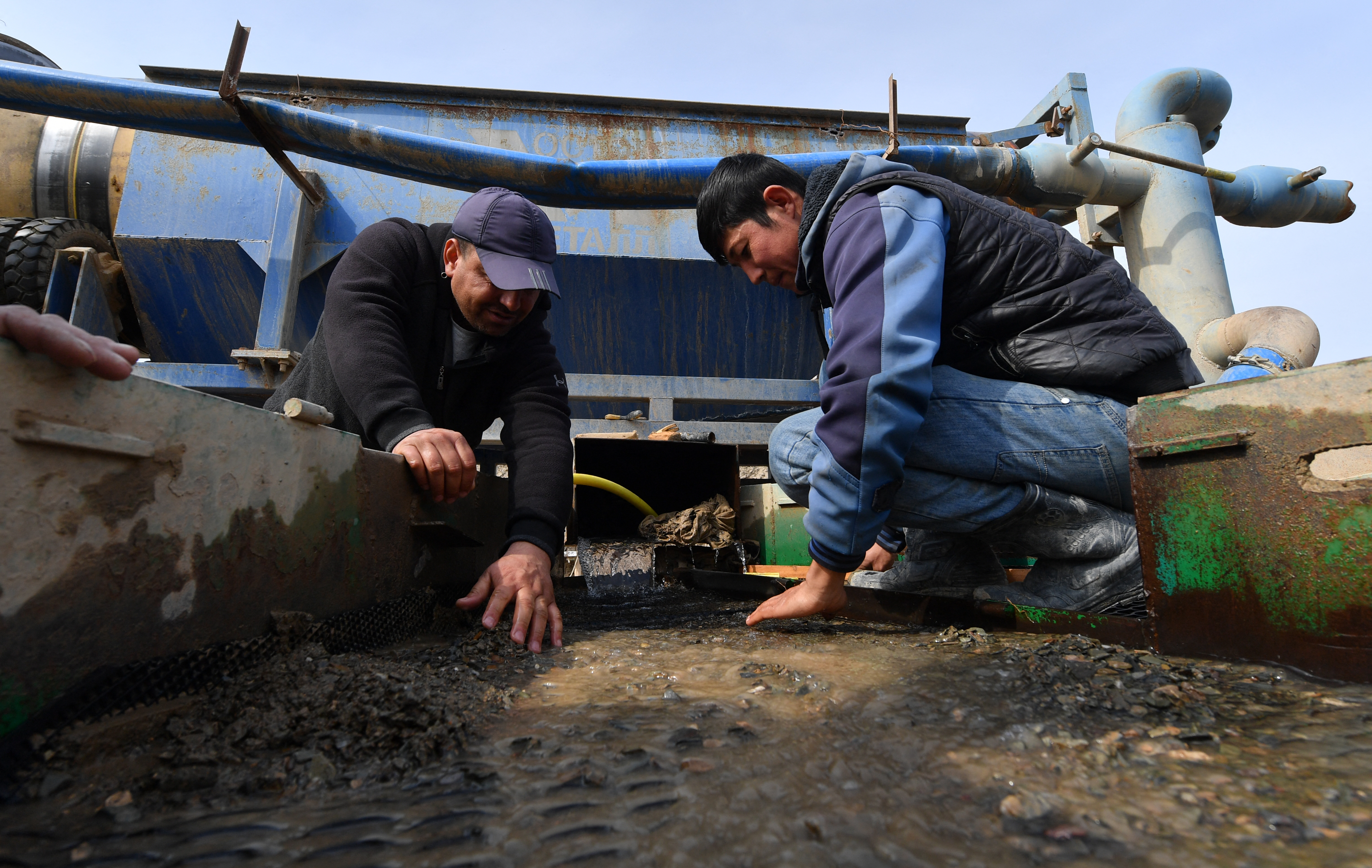
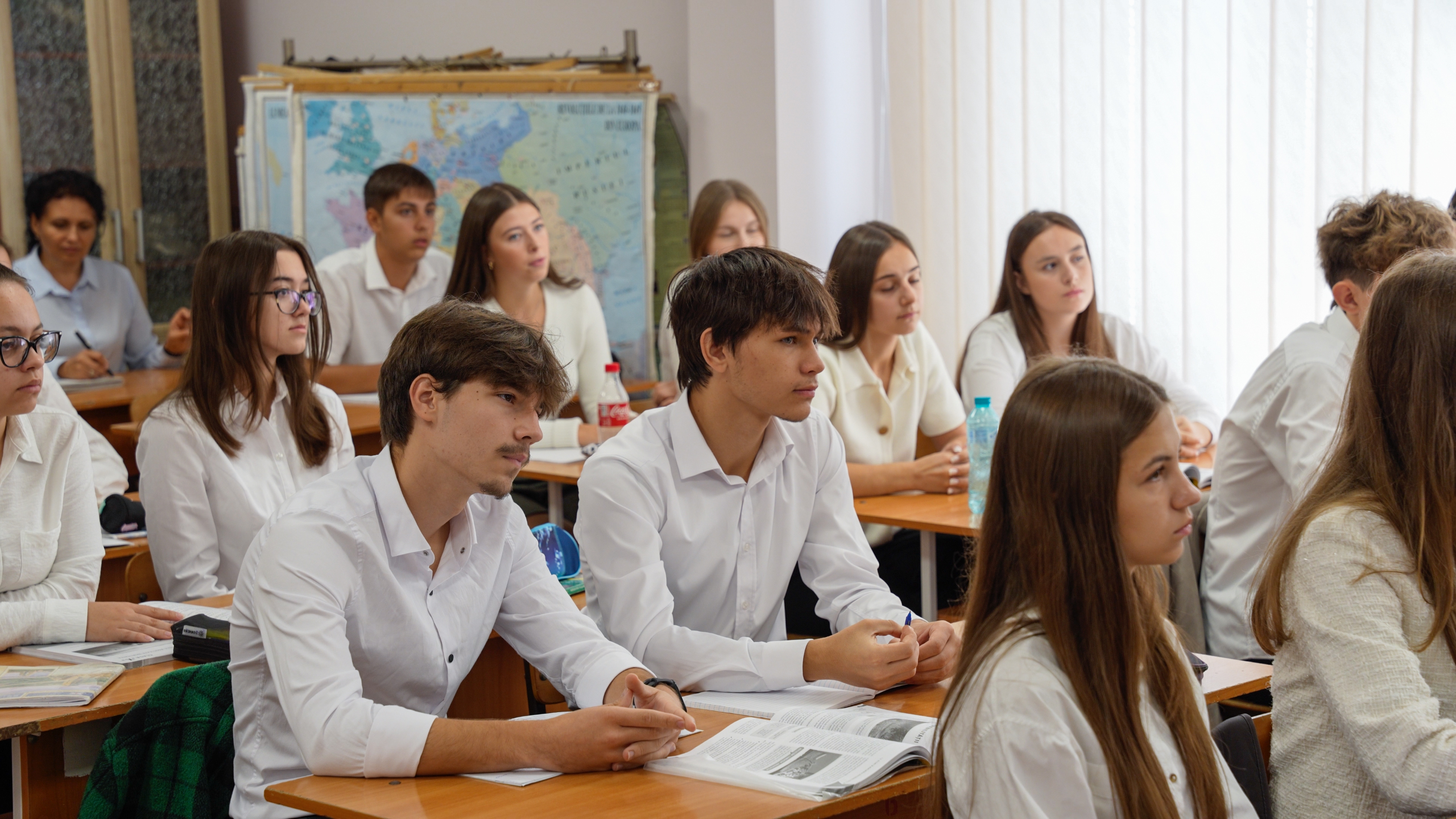

You can find an overview of ongoing debates with our journalists here . Please join us!
If you want to start a conversation about a topic raised in this article or want to report factual errors, email us at english@swissinfo.ch.